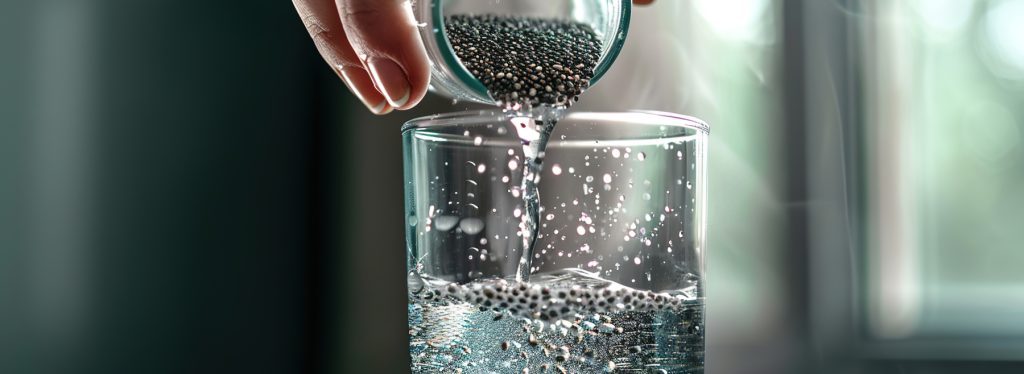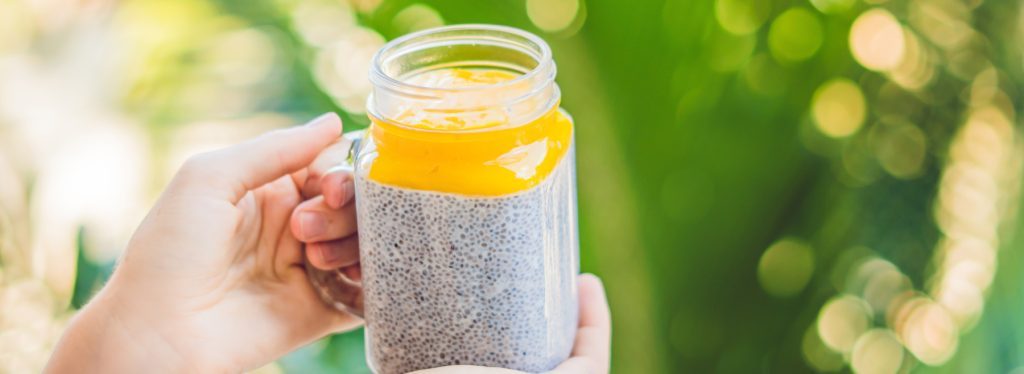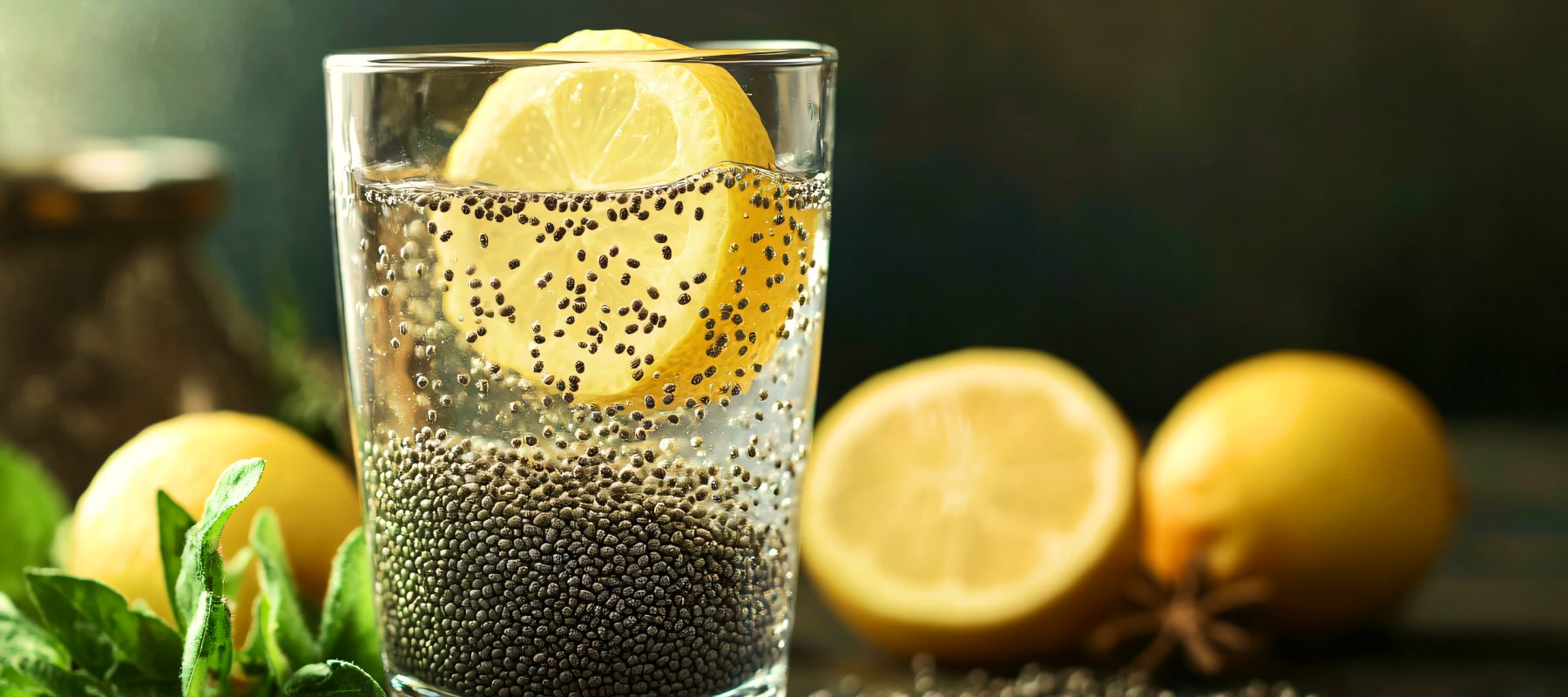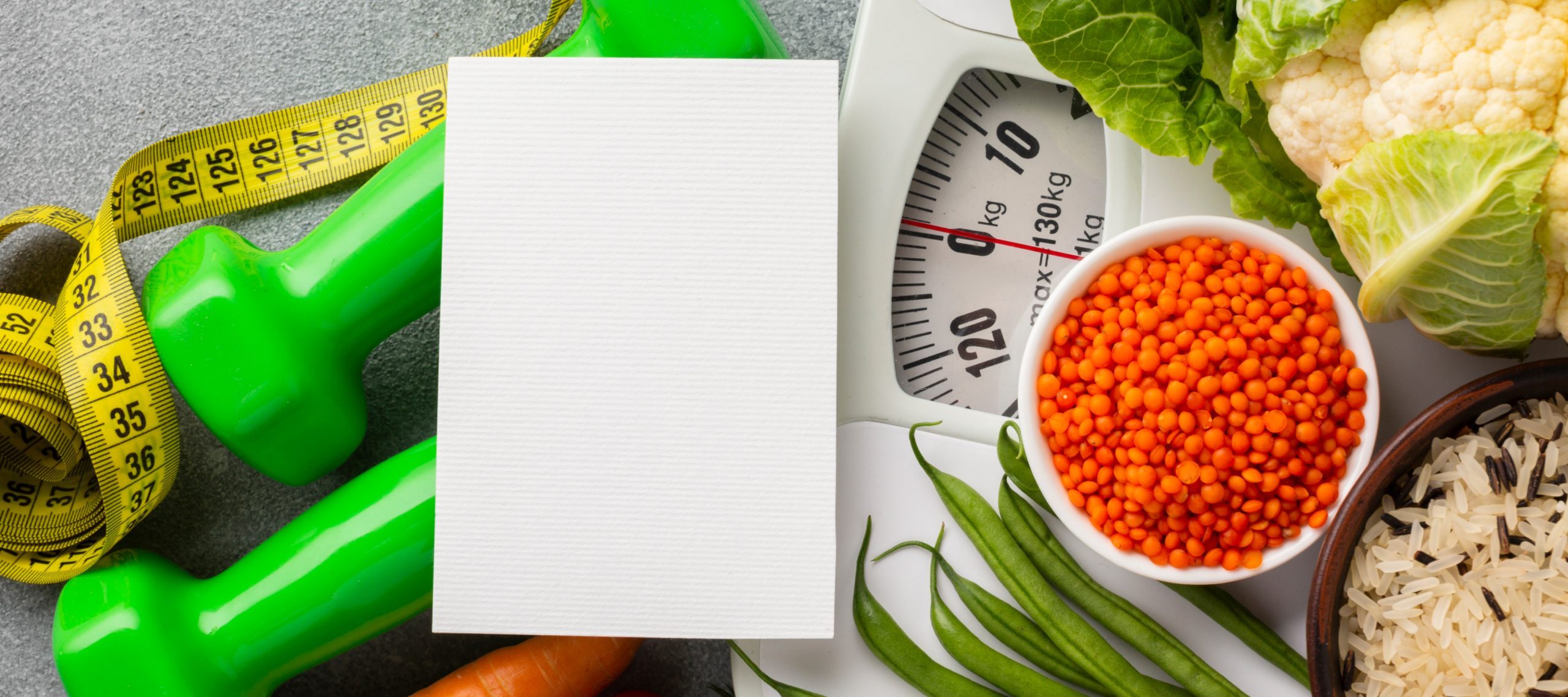Chia seeds are tiny oval-shaped seeds that have become quite popular recently. Despite their small size, they contain fibers, vitamin B, magnesium, and other nutrients. Nowadays, it has become a trend on Instagram to drink chia seed water as an alternative breakfast, as they stave off hunger and help lose weight. This blog will help you understand whether chia seed water can help you lose weight.
Benefits of Chia Seed Water
Chia seeds are quite healthy and a good source of fiber, protein, and various nutrients. After all, they are whole-grain and contain low carbohydrates and calories. More specifically speaking, they contain only about 100 calories per ounce.
Derived from Salvia hispanica, a purple-flowering plant from the mint family, chia seeds are primarily grown in Mexico and Guatemala. These seeds are very tiny—quite similar to poppy seeds—but contain nutritional elements.
These nutritional elements are:
- Antioxidants are essential to protect your body against free radicals that cause cancer and other diseases. They also play a role in how your body ages.
- Fiber: Every ounce of chia seeds contains 11 grams of fiber, which fosters good guy health and helps you feel fuller for a longer period of time.
- Protein: Often called the building blocks of your body, proteins are essential to maintain the health of your muscles, skin, bones, and more. Thus, chia seeds offer a key to losing weight and building muscle, which is significant among other health benefits.
- Other Nutrients: Chia seeds contain good fats, calcium, manganese, magnesium, and phosphorus, which are essential for preserving good health.

Can Chia Seed Water Help You Lose Weight?
Chia seed water refers to the same thing you can imagine by its name—a spoonful of chia seeds in a glass of water. These seeds can absorb at most twelve times their weight. When you soak them in water, they swell in size and transform into a jelly-like texture, which people often refer to as slimy.
The idea of having chia seed water is based on the fact that chia seeds absorb water and enlarge your stomach, taking up more space and making you feel fuller. This helps prevent hunger, so you will consume less food while feeling less hungry.
When you consume chia seeds, they mix with the water and gastric juices inside your stomach and expand, which makes you remain full for a longer span. Also, all of that soluble fiber slows down the digestion process. Thus, your body does not get any glucose spikes, as blood sugar is released more slowly.
Moreover, chia seeds may help stabilize blood sugar levels. This is because they slow down the rate of sugar formation from carbohydrates. Also, thanks to the fiber in chia seeds, they may help reduce insulin resistance. Therefore, they improve blood sugar levels — making them suitable for diabetic patients.
Risks of Chia Seed Water
Even though the internet is constantly buzzing about the benefits of chia seed water, you should stay moderate with it. Having it occasionally is fine, but it should not be your key method to lose weight.

If you plan to incorporate chia seed water into your diet for the first time, remember that they are not an alternative to a healthy diet—just a handy trick you can use occasionally. After all, gulping down a lot of fiber means you must gulp down a lot of water. If not, you may end up experiencing some unpleasant digestive issues such as constipation, gas, or bloating.
How to Make Chia Seed Water?
To make chia seed water, you can put one or two tablespoons of chia seeds in a glass of water (8 to 10 ounces). But if you are consuming it for the first time, you can start with a smaller amount and see whether your body can tolerate it. Though several Instagram Reels suggest soaking the seeds in water for a few minutes, drinking them quickly to get them into your stomach before they solidify is better.
When Is The Best Time to Take Chia Seed Water?
Before consuming, you must soak chia seeds in water. However, the duration of soaking may vary depending on your preference. You must have seen some Instagram influencers suggest soaking the seeds overnight. However, some people even soak them for only an hour. So, you can follow it however you like.

Regardless of how long you soak the seeds, you should consume the water in the morning. They help with hydration and assimilation of nutrients. Besides chia seed water, you can even consider some simple chia seed recipes. For example, add these seeds to curd, fruit juices, and vegetable bowls before a proper meal. But hold back from adding chia seeds to heavy meals, as you may not receive full benefits.
If you are not into drinking chia seed water every morning, let’s discuss other ways to have them. You can add them to smoothies. Also, you can make a chia seed pudding for breakfast or a healthy snack. Soak chia seeds in your favorite milk type overnight to make the pudding. Besides, you can add fresh fruits, nuts, and any sweetener to make the pudding taster, like maple syrup or honey. Give them a good mix — and your healthy breakfast or snack is ready. Have it yourself or feed your kids!
Note: Chia seed water is not a calorie-burning shot. It does not burn extra calories or boost your metabolism. Also, if you consume too much, you may put on weight and have digestive issues.
The Key Takeaway
Hopefully, now, you can understand why people are going crazy over chia seeds and how they can help you lose weight. So, if you also plan to lose weight, try chia seed water. However, remember to start with a small amount and see how your body reacts. After that, you can gradually increase your intake. Also, remember that drinking a glass of chia seed water daily will not undo the damage caused by poor dietary choices or calorie excess.
For more health and wellness blogs and updates, stay tuned to World of Heal.
Exciting guest posting opportunities are available on our website! For details, contact us at affiliates[@]prasarnet[.]com.

Vicky collaborates closely with doctors, scientists, and professionals in the medical and pharmaceutical industries. Having worked with SBU Community Clinic in the USA, he is dynamic in writing and publishing health-related guest blogging services, offering valuable insights in the healthcare field.














